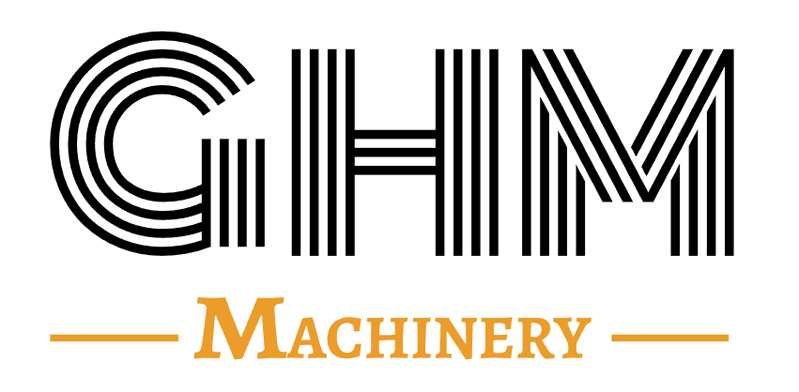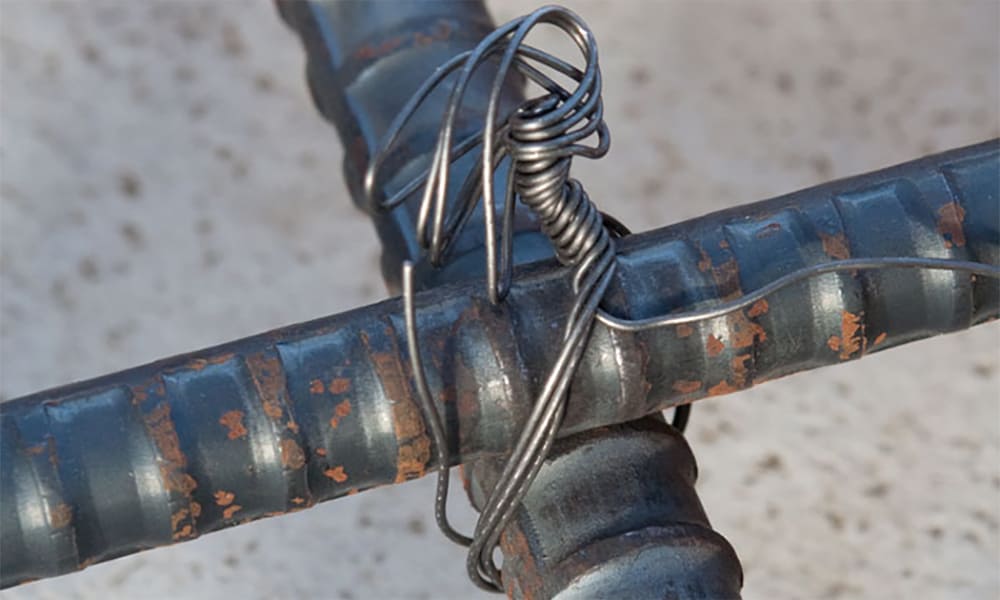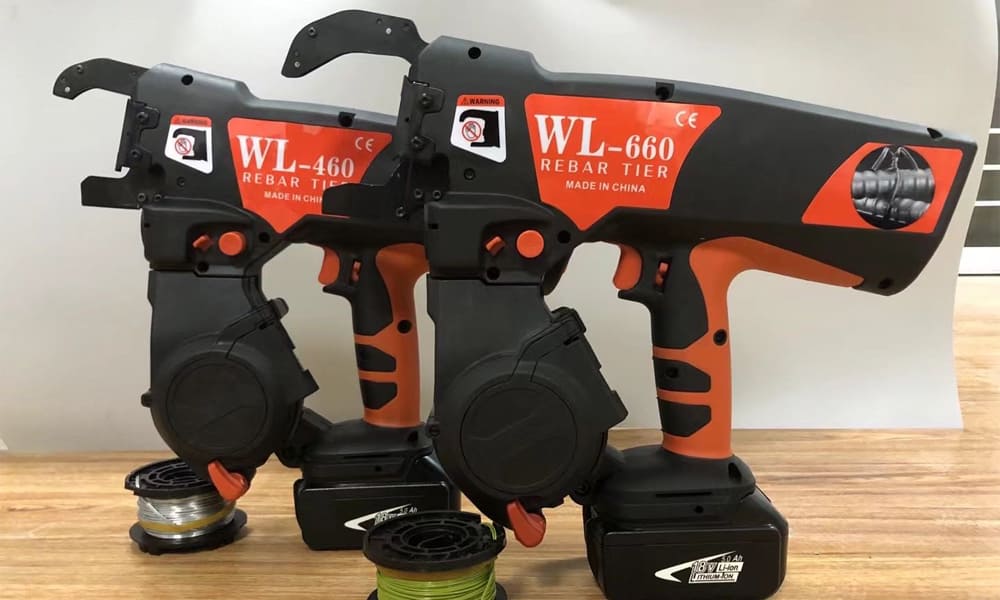Rebar Tier Machine is a powerful, handheld tool designed for quick and efficient rebar tying in construction projects. Often referred to as a fully automatic rebar tying tool, this battery-powered device automates the entire process, making it a valuable asset on the construction site. With its built-in microcontroller, the rebar tying machine provides speed and precision, eliminating the need for traditional manual tying methods. Before investing in one, it’s crucial to understand its features, benefits, and key considerations based on your specific project needs.
Key Advantages of a Rebar Tier Machine
- Portability: Rebar tying machines are compact and portable, requiring no external power source, making them ideal for use across different job sites.
- Ease of Use: Their lightweight design allows for effortless operation, minimizing worker fatigue and enhancing productivity.
- High Reliability: The unique dual-force structure ensures strong, secure connections between rebars, enhancing stability and reliability.
- Strong Tension: These machines are designed for heavy-duty applications, making them suitable for bundling steel and other tough materials.
- Durability: Constructed from high-strength alloy materials, these tools offer robust performance and are built to last, even in challenging environments.
- Ergonomic Design: Featuring a patented ergonomic design, these machines are easy to handle, improving operator safety and reducing strain during extended use.
Types of Rebar Tier Machine
When selecting a rebar tying machine, it’s important to understand the different types available and their suitability for your projects:
1. Manual Rebar Tying Machine
- Features: Simple to operate but relatively slow.
- Best For: Small-scale, low-frequency applications.
- Pros: Economical, easy to use, and low maintenance.
- Cons: Slower and more labor-intensive, making them less ideal for large-scale projects.
2. Semi-Automatic Rebar Tying Machine
- Features: Semi-automated, which increases efficiency, but still requires some manual handling.
- Best For: Medium-scale strapping and tying tasks.
- Pros: Provides a balance between speed and cost.
- Cons: Requires partial manual intervention, limiting its full potential.
3. Fully Automatic Rebar Tying Machine
- Features: High automation and speed, requiring minimal manual handling.
- Best For: Large-scale, high-frequency applications.
- Pros: Maximum productivity and ease of use.
- Cons: Higher initial investment cost, but offers long-term benefits.
Technical Performance Criteria
To ensure optimal performance, consider the following technical features when choosing a rebar tying machine:
- Speed: A high-quality rebar tying machine should complete each knot in just 1 second, making it 3-4 times faster than manual tying methods.
- Ease of Operation: Machines designed for one-handed operation enhance worker safety and reduce error rates, making them easier to use.
- Lightweight Construction: Ideal machines should weigh around 2.5 kg, providing easy handling and minimizing operator fatigue.
- Battery Capacity: Look for models with powerful lithium batteries that offer a charging time of 70-80 minutes and up to 1500 knots per charge, ensuring uninterrupted performance on-site.
Choosing the Right Rebar Tying Machine Based on Application
Your choice of a rebar tying machine should align with the specific requirements of your project. Consider these factors:
- Outdoor Use or Harsh Environments: Select models that are waterproof, dustproof, and resistant to drops for reliable performance in tough conditions.
- Complex Rebar Specifications: Opt for machines with adjustable settings and high flexibility to accommodate various rebar sizes and shapes.
- Heavy-Duty Applications: For demanding projects, choose models with a strong tensile force and high durability to handle rigorous conditions.
Conclusion
Investing in the right rebar tying machine can significantly boost productivity and efficiency in construction projects. When making a choice, consider the type of machine, its performance features, and your specific application needs. Whether you need a manual, semi-automatic, or fully automatic rebar tying tool, selecting a high-quality and reliable machine will ensure efficient rebar tying, reduced labor costs, and improved project quality.
By understanding these key factors, you can make an informed decision and choose a rebar tying machine that best suits your project requirements.


